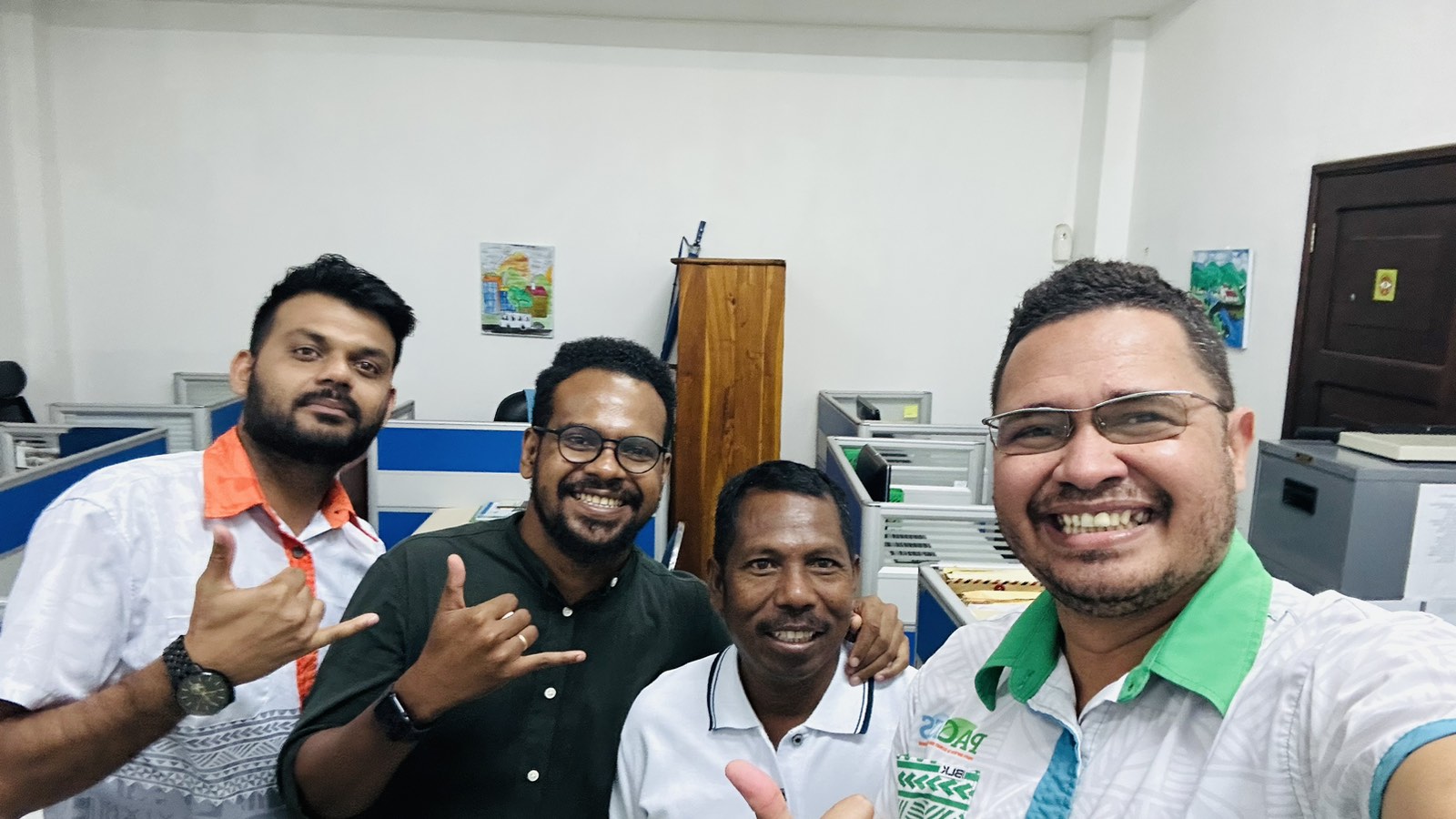Forging Resilience: Timor-Leste’s Climate Journey with USP PACRES
27 October 2023

As a result of the pressing issues presented by climate change, Timor-Leste faces heightened vulnerability to environmental crises, including droughts, floods, landslides, and soil erosion. The University of the South Pacific’s European Union-funded program, Pacific Adaptation to Climate Change and Resilience Building (PACRES), serves as a shining example of the beneficial outcomes achievable through visionary partnerships and proactive strategies for tackling climate change.
The main goal of the USP PACRES program was clear: to strengthen the abilities of Pacific nations and to deal with climate change challenges in various areas, including operations, institutions, and finances. Timor-Leste was one of five countries chosen to receive capacity-building support through the USP Component of the PACRES program.
The USP PACRES program crucially incorporated a Rights-Based Approach and Gender and Social Inclusion Training. Prioritizing the rights of vulnerable communities ensured the safeguarding of essential rights in the context of climate change. Gender and social inclusion training also empowered marginalized groups, fostering equality and amplifying the voices of often overlooked individuals. This approach increased the inclusivity and responsiveness of climate adaptation efforts to meet diverse community needs, ultimately nurturing resilience and sustainable development.
“The USP PACRES program serves as a symbol of hope and resilience in the fight against climate change, a testament to what can be accomplished when communities, organizations, and nations join forces with a shared vision for a sustainable and resilient future,” stated Leonardo de Sousa Rosa, the USP PACRES Research Community Officer (RCO). “It’s an ongoing success story with the potential to bring about enduring change and protect the well-being of both communities and ecosystems for generations to come.”
The USP PACRES project has demonstrated a strong commitment to capacity building through its Level 4 Resilience Certificate program. This dedication to enhancing the expertise of climate change personnel at the National Directorate of Climate Change (NDCC) represents a highly commendable effort in addressing the challenges associated with climate change.
By providing advanced skills and knowledge to the NDCC staff, the project is significantly bolstering their ability to effectively address the continually evolving climate challenges. This investment in professional development not only benefits the individuals involved but also carries broader implications for the nation. It strengthens the ministry’s capacity to formulate and implement resilient policies and initiatives, showcasing a proactive approach to climate change adaptation and mitigation. This, in turn, bolsters the country’s adaptability and preparedness in the face of climate-related threats, which is especially vital in an era characterized by the escalating impacts of climate change.
Such capacity-building initiatives play a pivotal role in addressing climate change and promoting sustainability. They empower local institutions and personnel to take action and make informed decisions that can positively impact their communities and the environment.
To ensure the continued success of the USP PACRES program, it’s vital to emphasize translating knowledge into action, encouraging public involvement, and guiding the community in applying what they’ve learned. Furthermore, fostering community engagement, launching climate change awareness initiatives, and facilitating collaboration among communities, government agencies, and organizations are critical for sustainability.
The remarkable success of the USP PACRES program owes much to the invaluable collaboration and unwavering support from the National Directorate of Climate Change (NDCC), which played a pivotal role in realizing the program’s overarching goals, including the development of an integrated strategy to address Climate Change and Disaster Risk Management in the Pacific-ACP region.
A four-year initiative, the PACRES program is the result of a remarkable partnership among four influential Council of Regional Organisations of the Pacific (CROP) partners. These organizations, including the Secretariat of the Pacific Regional Environment Programme (SPREP), the Pacific Islands Forum Secretariat (PIFS), the Pacific Community (SPC), and The University of the South Pacific (USP), joined their efforts to combat the critical issue of climate change in Pacific.